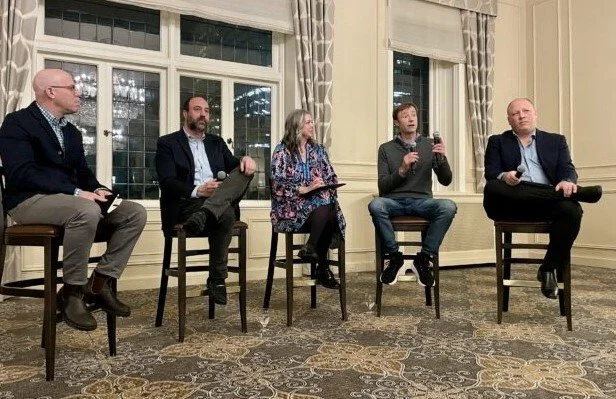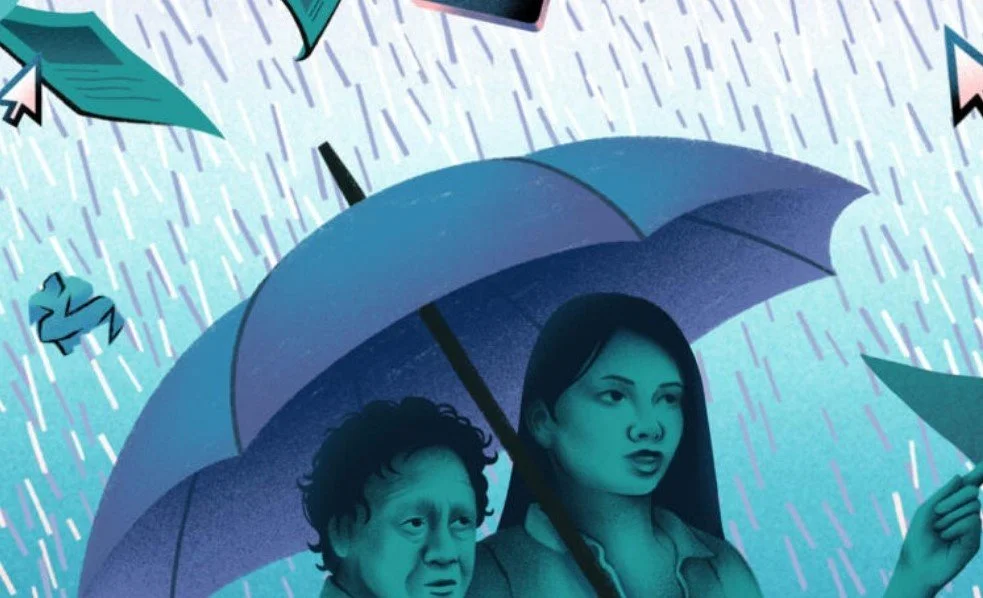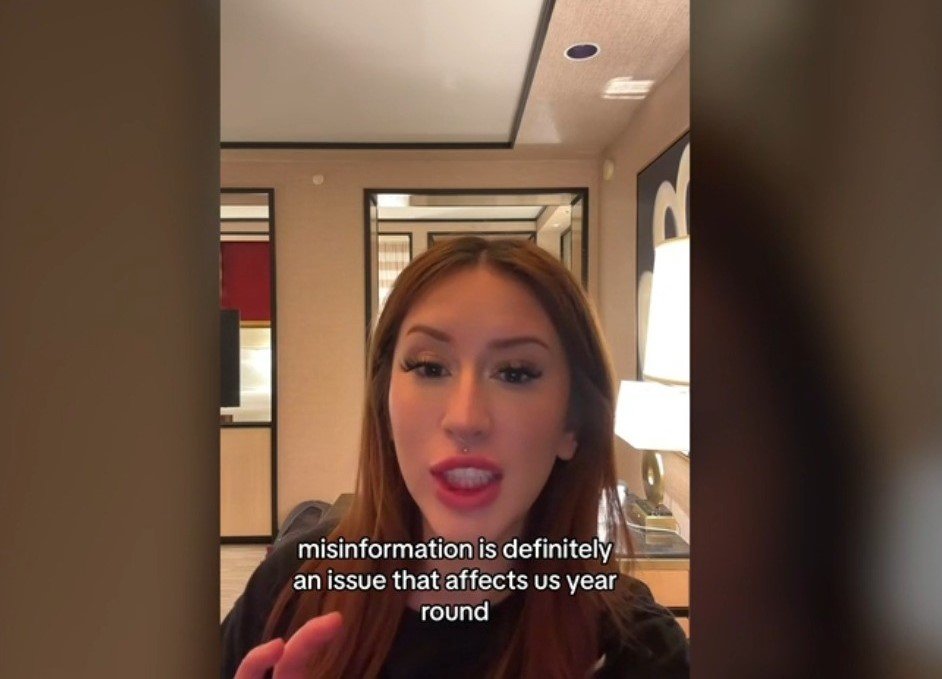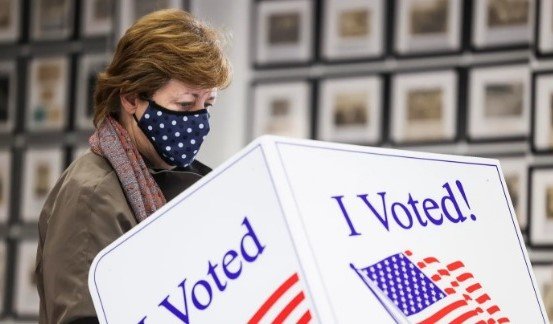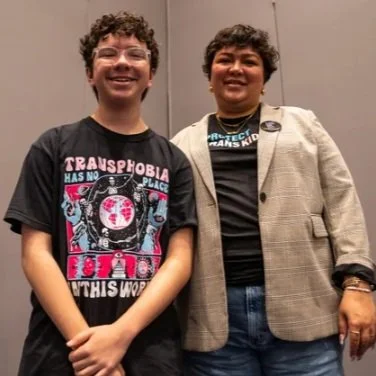Conspiracy theories have a long history. Humans have always speculated about secret motives and plots as a way to understand their world and avoid danger.
Associated Press
In the spring of 2020, when President Donald J. Trump wrote messages on Twitter warning that increased reliance on mail-in ballots would lead to a “rigged election,” the platform ran a corrective, debunking his claims.
The New York Times
Days after Maui’s wildfires killed scores of people and destroyed thousands of homes last August, a shocking claim spread with alarming speed on YouTube and TikTok: The blaze on the Hawaiian island was set deliberately, using futuristic energy weapons developed by the U.S. military.
The Associated Press
A robocall created with artificial intelligence that impersonated President Joe Biden and targeted voters in New Hampshire earlier this month is just the latest example of how rapidly advancing AI tools are a growing threat to elections — and more broadly to society.
GeekWire
The 2024 election season is in full swing and with the race for the White House happening this cycle, we're already seeing misinformation appear online.
KNXV-TV ABC15 Arizona
Last year, the world experienced the hottest day ever recorded, as we endured the first year where temperatures were 1.5°C warmer than the pre-industrial era. The link between extreme events and climate change is clearer than ever. But that doesn’t mean climate misinformation has stopped. Far from it.
The Conversation
Earlier this year a friend of mine, who is a second-generation Vietnamese American, told me she stopped talking to her mother. She was becoming more and more frustrated because her mother, an immigrant from Vietnam, kept bringing up pro-Trump conspiracy theories and had adopted racist views on immigrants.
The Markup
With the 2024 U.S. Presidential election several months away, community groups, public officials and researchers predict an upsurge in misinformation.
The Dallas Morning News
TikTok last month joined the growing number of tech companies promising to protect “election integrity” this year as the U.S. and dozens of other countries go to the polls.
The Wrap
The rumors about vote fraud started swirling as the ballots in Taiwan’s closely watched presidential election were tallied on Jan. 13. There were baseless claims that people had fabricated votes and that officials had miscounted and skewed the results.
The Associated Press
The expanding measles outbreaks in England and the U.S. are causing increased concern among public health officials. Last week, the U.K. Health Security Agency declared a “national incident” over a surge in measles cases across the country. Yesterday, the British National Health Service began a major “catch up” vaccination campaign to ensure adequate uptake of the measles, mumps and rubella vaccine.
Forbes
Measles would be gone if we wanted it to be. We’ve had a highly effective, safe vaccine for it for 60 years. But because of rising anti-vaccine sentiments, measles is back, with recent cases in Philadelphia, New Jersey and Virginia. Unless we tackle the misinformation that is at the root of vaccine hesitancy, more children will get sick from this and other nasty, preventable diseases in 2024.
TIME
Seeing COVID rates hit another high, and vaccine uptake remain low, doctors don’t have an antidote for something they see as an ongoing risk factor: the spread of misinformation, including on the presidential campaign trail.
PBS NewsHour
Protecting the integrity of elections requires collaboration from every corner of the democratic process, and we want to make sure our technology is not used in a way that could undermine this process.
OpenAI
Billions of people are voting in elections across the world this year, which experts fear could be undermined by increasingly popular artificial intelligence tools like ChatGPT and the misinformation they enable, prompting some of the world’s biggest tech companies to publicly disclose how they plan to moderate content.
Forbes
Misinformation isn’t just blurring political lines anymore. It’s quietly infiltrating our shopping trolleys in subtle ways, shaping our decisions about what we buy and who we trust, as my research shows.
The Conversation
At a webinar hosted by RealClearHealth, I spoke on how “vaccines are one of the few truly cost-effective health care interventions.” When evaluated across a range of preventable transmittable diseases, studies demonstrate that vaccines are worth more than their cost, and increase life expectancy and quality of life. But vaccines are only effective if they are used.
American Enterprise Institute
More than half of the world’s population will cast votes this year, making election security a global risk to democracy that extends far beyond the U.S. A rising risk component in democratic elections is the role of artificial intelligence in spreading misinformation that influences voters, including the use of deepfakes.
CNBC
Video footage of Hamas fighters purportedly parachuting into Israel on Saturday. A photo of an official White House document seemingly showing that the Biden administration is sending $8 billion in military aid to Israel. A video of Israeli air force planes apparently attacking the Gaza Strip last weekend. Each of these is false.
The Chronicle of Philanthropy
As discussions about transgender students roiled school board meetings across the state in 2023 — particularly about bathroom use — political organizations and conservative think tanks further amplified or distorted fears.
Arizona Republic/AZCentral.com




